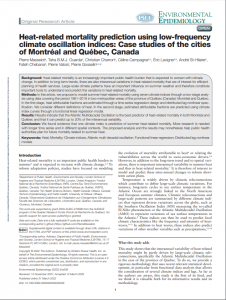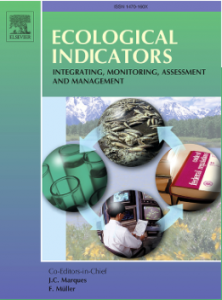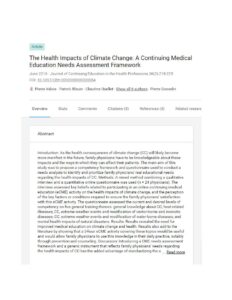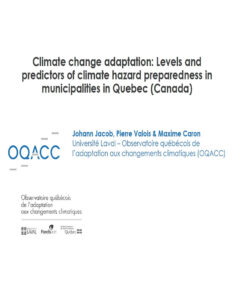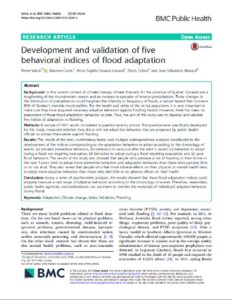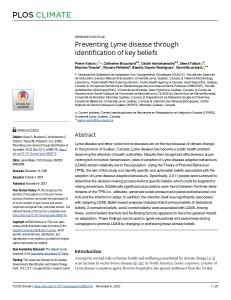
- Publié le November 9, 2023
Lyme disease and other vector-borne diseases are on the rise because of climate change. In the province of Quebec, Canada, Lyme disease has become a public health problem deserving the attention of health authorities. Despite their recognized effectiveness at preventing tick-to-human transmission, rates of adoption of Lyme disease adaptive behaviours (LDAB) remain relatively low in the population. Statistically significant associations were found between the three determinants of the theory of planed behavior (TPB) (i.e., attitudes, perceived social pressure and perceived behavioral control) and the intention to adapt. These findings can be used to guide educational and awareness-raising campaigns to promote LDAB by changing or reinforcing these primary beliefs.
